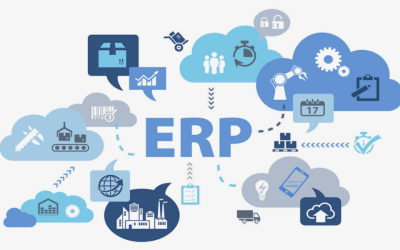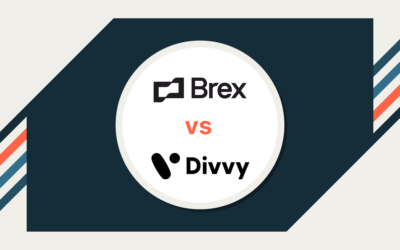Airbase and BILL are both well-known names in the AP automation space.
On the surface, they share many features, including AP automation, bill payments, and expense management. But, as you delve deeper, significant differences between the two become apparent.
Fortunately, we’ve done the hard work for you.
Here’s a detailed Airbase vs BILL comparison that zooms in on the features, pros, cons, and pricing of each.
What does Airbase do?

Airbase’s spend orchestration features are distributed across its modules of Guided Procurement, AP Automation, Expense Management, and Corporate Cards. Designed for mid-market and enterprise companies, the platform uses generative AI, OCR, and ML to automate the entire spectrum of procure, pay, close processes, offering a touchless financial process automation experience. Airbase has the most comprehensive spend analytics capabilities, with both flexible customized reporting and insights on trends and process efficiency.
What does BILL do?

BILL’s AP automation module handles accounts payable and accounts receivable tasks of small and mid-market businesses. Its Spend & Expense module (formerly Divvy) takes care of expense management and corporate cards. In addition, there are some useful features, such as cash flow forecasting, budgeting, and managed Payment Services.
Airbase vs BILL: A comparison of features.
| Modules | Specific features | Airbase | BILL |
| AP automation | AI-powered invoice automation | ✓ | ✓ |
| Multi-currency payment | ✓ | ✓ | |
| Multi-subsidiary support | ✓ | ||
| Approval workflows | ✓ | ✓ | |
| Amortization | ✓ | ||
| Vendor network | ✓ | ✓ | |
| Expense management | Pre-set budget | ✓ | ✓ |
| Receipt-scanning app | ✓ | ✓ | |
| Global reimbursement | ✓ | ||
| Automated expense reports | ✓ | ✓ | |
| GL coding and categorization | ✓ | ✓ | |
| Guided procurement | Intake form | ✓ | |
| Purchase order creation | ✓ | ||
| PO matching | ✓ | ||
| Purchase assistance | ✓ | ||
| Travel management | ✓ | ||
| Invoicing/Accounts receivable | ✓ | ||
| Bill payment | ✓ | ✓ | |
| Corporate cards | ✓ | ✓ | |
| Spend Analytics | ✓ | ✓ | |
| ERP integration | ✓ | ✓ |
How does Airbase differ from BILL?
You can see the areas where Airbase and BILL offer similar features in the above table. But, Airbase differs from BILL in these aspects:
- Procurement features: Airbase provides end-to-end procurement solutions that BILL lacks, such as custom intake forms, step-by-step purchase assistance, milestone-based advanced approval workflows, and PO creation.
- Seamless AP automation: Apart from comprehensive multi-entity support, Airbase supports accrual accounting, amortization, and cross-border payment support to 200+ countries and in 145+ currencies. While these features are missing in BILL, it does support payments to vendors in USD and in 106 currencies across 130 countries.
- Reimbursements in local currencies: Unlike BILL, Airbase supports global reimbursements across 44 countries and 14 currencies.
- Travel management tools: As an integrated travel and expense management platform, Airbase helps users book and manage business travel.
- Dedicated fraud investigation team: In addition to cutting-edge security and fraud detection tools, Airbase offers the services of a fraud investigation team that works 24/7 to prevent transaction fraud.
Key features: Airbase.
Here are Airbase’s core capabilities.
Guided Procurement.

Milestone-based, parallel, or sequential approval workflows
The Guided Procurement module is one of the crucial offerings that sets Airbase apart from BILL.
As the name suggests, the module guides and enables employees to make compliant purchases and enables admins to customize intake forms, approval flows, and integrations. Some of the highlights of the module include a multi-layered approval workflow builder, instant PO creation from approved purchases, and the ability to capture relevant documents at each stage.
Integrations with contract management software and ticketing systems ensure stakeholders across finance, IT, procurement, and legal teams collaborate in real time to fast-track the process.
Accounts Payable Automation.

A repository for vendor information, performance metrics, and documents
AP automation features such as invoice capturing, 3-way matching, splitting of multiple invoices, and automatic approval routing are common to both platforms.
But, when compared to BILL, Airbase’s AP Automation module is far more advanced and nuanced. For example, Airbase offers comprehensive multi-subsidiary functionality that BILL lacks. Airbase users get complete visibility into spend across subsidiaries and can link multiple bank accounts to each subsidiary to manage payments.
A dedicated vendor management portal simplifies onboarding, tax ID validation, W-9 form collection, and collaboration with vendors.
Airbase supports global payments to 200+ countries in 145+ currencies through ACH, check, virtual card, international wires, or vendor credits. Thanks to its deep integrations with NetSuite and 70+ ERPs, reconciliation and month-end close are a breeze.
Expense Management.

OCR, ML, and AI-based expense data extraction
Airbase’s automated Expense Management module combines the power of OCR, generative AI, and machine learning technologies to offer a seamless, touchless experience for both employees and admins.
Once employees upload pictures of receipts via their mobile app, the platform scans the details and automatically populates expense data. Automated expense reporting and smart approval workflows ensure rapid reimbursements from within the platform.
Admins can set custom expense policies and spend limits while the platform enforces compliance by flagging out-of-policy requests, alerting users to upload receipts, and even locking the card when necessary. Airbase supports global reimbursements across 44 countries and 14 currencies.
Corporate Cards.

Admins can easily adjust spend limits to adapt to changing circumstances
The ability to generate physical and virtual cards while earning unlimited cash back on each transaction across categories differentiates Airbase’s Corporate Card program.
Administrators can specify custom spend limits, generate unique virtual cards for each vendor, and create tailored approval workflows for specific departments, amounts, and employees. Airbase wins over BILL by offering a straight-line amortization feature, generating the amortization schedule, displaying booking details, and automatically creating entries to record the monthly expense amortization.
Airbase integrations.
Airbase offers no-code managed integrations with over 70 ERPs, HRIS software in addition to offering ERP integration API.
Accounting software:
- NetSuite
- QuickBooks
- Xero
- Sage Intacct
- Microsoft Dynamics 365 Business Central
- Acumatica
HRIS:
- Okta
- BambooHR
- Workday
- Rippling
- SAP
- OneLogin
Collaboration/contract management:
- Slack
- Jira
- DocuSign
- Ironclad
- Asana
Airbase Pros.
- Comprehensive P2P solution: Airbase handles the entire spectrum of spend management functions across Guided Procurement, AP Automation, Expense Management, and Corporate Card modules.
- Advanced AP automation capabilities: Fast-tracks month-end closing with accurate invoice data capturing, smart receipt management tools, automatic bill creation, 3-way PO matching, and deep integration with 70+ ERPs.
- Multi-subsidiary capabilities: Offers international payment support and the ability to link multiple banks to a subsidiary.
- Dedicated fraud investigation team: A team of experts work 24/7 to flag potential fraud and mitigate risks.
- User-friendly platform: Airbase is consistently highly rated by users for its user-friendly design and intuitive interface.
Airbase Cons.
- Not designed for small businesses: Small businesses and startups may not be able to make full use of Airbase’s advanced features. These businesses can opt for individual modules instead.
- Lacks sourcing capabilities: While Airbase is an end-to-end P2P platform, it currently lacks advanced sourcing capabilities, including Request for Proposal (RFP) management.
Key features: BILL.
Time to examine BILL’s features in more detail.
AP automation.

BILL uses AI to extract invoice details
BILL’s AI extracts data from invoices and auto-generates bills by populating fields such as vendor name, payment due date, amount, and invoice date. Admins can specify approval policies based on dollar amount or roles and select default approvers and approval groups. Custom approval policies, however, are only available in premium paid plans.
While BILL lacks procurement features that Airbase offers, such as PO creation and guided procurement, it matches bills with POs and allows direct payment to vendors within the BILL network.
Expense management.

Admins can review the most important tasks on the dashboard
BILL offers expense management through the free Spend & Expense module (formerly Divvy), available as both a mobile app and web application. Once employees upload receipts on the mobile app, the platform extracts data using OCR, automates expense reports, and categorizes card transactions.
Admins can control spend by setting budgets for different departments and defining policies to cover merchant controls, maximum transaction limits, approval flows, receipt requirements, etc. Users can view expense trends based on date range, categories, departments, clients, and more.
Unlike Airbase, that supports multi-currency reimbursements, BILL only allows reimbursements in USD.
Corporate card.

Unique virtual cards can be created for each vendor
With BILL, admins can issue one physical card per user and multiple virtual cards with spend limits. The physical card or the BILL Divvy Corporate Card can be used for in-store purchases, while virtual cards can be used for one-time or recurring purchases. Users can also add their existing Discover, Visa, Mastercard, or American Express cards to manage domestic and international payments.
Payments.

BILL automates ACH payments to vendors within the BILL network
BILL network, a database of over 4 million vendors, makes it easy for businesses to fast-track payments. The platform automatically checks if a vendor is within the BILL network and surfaces their preferred payment method.
Companies can pay their vendors in USD and in 106 currencies across 130 countries via ACH, virtual card, or wire transfer. The Pay by Card feature lets users pay vendors with their credit card while the system pays vendors via their preferred method ( ACH payment, virtual card, or check).
BILL users can leverage the managed Payments Services, where a specialist manages vendors and large invoices.
BILL integrations.
BILL offers 2-way sync with four major accounting software while allowing data import and export with other ERPs and systems.
Accounting/ERP:
- NetSuite
- Sage Intacct
- QuickBooks
- Xero
- Microsoft Dynamics
- Collaboration:
- Slack
Tax/expense management:
- Tallie
- HubDoc
- Tax1099
- Earth Class Mail
BILL pros.
- AI-powered AP automation: BILL’s AI automates bill creation, receipt matching, and expense categorization.
- Vendor network: BILL network features over 4 million vendors and their payment details to help fast-track payments.
- Accounts receivable tools: Professionally designed invoice templates, real-time visibility into invoice status, auto-charge, and payment reconciliation.
BILL cons.
- Lacks procurement features: BILL lacks procurement features including purchase requisition forms, PO creation, and step-by-step guidance. PO matching is only offered with NetSuite, Sage Intacct, and QuickBooks.
- Immature AP automation capabilities: Designed for SMBs and startups, BILL’s AP automation lacks the maturity required to manage the complex processes of mid-market and enterprise companies.
- Basic multi-entity and multi-currency support: Reimbursements are not supported in multiple currencies. Users can’t make payments to international vendors from the corresponding subsidiary.
Which is better: Airbase or BILL?
There’s no one formula that fits all! If your business has an established procurement process, Airbase would be the best choice, given its procurement tools, such as intake forms, Price Intelligence, and PO creation.
Airbase is also the obvious choice if you’re looking for an integrated travel and expense management platform.
BILL has some features that Airbase lacks, such as an extensive vendor network, and accounts receivable tools.
Can these two systems be used together?
Using both systems together would also add to your costs, not to mention the redundancy of some features.
A smart way to make the most of your investment is to choose a single platform that has all the P2P features you desire.
Why choose Airbase over BILL?

Airbase offers a detailed audit trail of every expense
Designed with SMBs in mind, BILL doesn’t have the sophistication required to handle the complexities of modern businesses.
While BILL automates many accounts payable and accounts receivable tasks, it lacks many features that businesses expect in a P2P software.
For example, BILL lacks procurement features, such as purchase assistance, custom intake form, PO creation, and features to support the participation of stakeholders across legal, IT, procurement, finance, and more.
Also missing are deeper ERP integrations, seamless travel management, and flexible corporate card programs.
These are precisely the areas where Airbase excels.
Airbase’s strong suites include advanced multi-subsidiary support, global bill payment solutions, amortization, deeper 2-way integrations with ERPs, and travel management tools, to name just a few.
Designed to address the pain points of financial professionals in mid-market and enterprise companies, Airbase eliminates the time, effort, inefficiencies, and cost associated with manual and disparate processes.
As The Total Economic Impact of Airbase report by Forrester Consulting shows, a typical Airbase user realizes:
- Quantifiable benefits that add up to $979,000 in three years as a result of cash-back revenue, labor cost savings, optimized vendor relationships, and improved efficiencies.
- Unquantifiable benefits ranging from increased time to devote to strategic tasks, higher financial accuracy, stronger risk mitigation, and improved negotiation position.
To clinch the deal, here’s a quick summary of how Airbase beats BILL in all aspects:
| Modules | Features | Airbase | BILL |
| Procurement | Intake form | ✓ | ✖ |
| Milestone-based advanced approval workflow, parallel and sequential flows | ✓ | ✖ | |
| Dynamic adaptation based on responses | ✓ | ||
| Step-by-step purchase requisition guidance | ✓ | ||
| PO creation | ✓ | ||
| 3-way PO matching | ✓ | ||
| AP automation | Approval workflows | ✓ Advanced | |
| Amortization | ✓ | ||
| ERP integrations | Deep integration with NetSuite, Sage Intacct, Microsoft Dynamics. 70+ ERP integration support. | ||
| Bill payment | Global payment | Supports international bill payments to 200+ countries and 145+ currencies | |
| Expense management | Integrated travel and expense management | ✓ | |
| Receipt inbox | ✓ | ||
| Unlimited physical and virtual cards | ✓ | ||
| Cash back rewards | ✓ | ||
| Security/fraud prevention | Advanced algorithms to ensure only approved vendors are onboarded | ✓ | |
| Fraud investigation team | ✓ | ||
| Spend analytics | Consolidated view of spend across categories, vendors, departments, spend types, and more | ✓ | |
| Productivity metrics, including approval cycle time | ✓ | ||
| Customer support and user interface | UI/UX | Excellent | |
| Customer responsiveness | Excellent | ||
| G2 rating | 4.8 | 4.4 |
 Jira
Jira  Ironclad
Ironclad  Asana
Asana 




